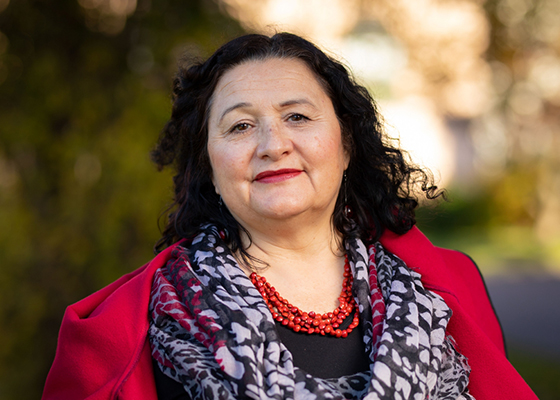Irene Molina received the award together with Carina Listerborn, Professor of Urban Planning at the Department of Urban Studies at Malmö University. Kritikerpriset is awarded by Architects Sweden.
These two dedicated architectural researchers, each of whom has vast experience, issues a sharper critique of the current urban development and housing situation in Sweden in 2020.
“Kritikerpriset highlights the best architectural analysis or best contribution to informed dialogue about architecture and urban planning.”
How does it feel?
“It feels great! It's an honour to be rewarded for doing what you're passionate about, and it’s particularly nice to share the award with my colleague and friend Carina Listerborn, whose work I admire.”
What efforts would you say played an important role in winning this award?
“My research on the city and justice, often referred to as segregation research, is essentially a hard critique of the structures and ideology in society that have enabled – and even steered urban development, into highly segregated patterns of housing, and where class, race/ethnicity and even gender and age have been objects of spatial separation. In other words, planning has been used in Sweden to separate socially constructed categories from each other, based on ideas of sameness and difference.”
What is the main problem in Sweden today in relation to urban planning and housing construction?
“The neoliberal policy that has prevailed in the housing sector since the early 1990s. It is increasingly leaving the housing issue in the hands of the private sector. The state is capitulating on social housing issues. People are being evicted from their homes because of higher rents, homelessness and overcrowded housing are on the rise. In other words, there is a rise in housing inequality, i.e. class and ethnic polarisation, with poor areas becoming poorer and rich areas a little richer – and more homogeneous among themselves.”
“Alongside this development, there is no social housing policy, and we have not had any social housing inquiry since the 1930s. The social housing issue needs to be put on the political agenda as soon as possible, as we are facing a housing crisis that is not about building more – expensive housing is already available almost everywhere – but about building housing that people can afford, without compromising on standards and quality. These have historically been the milestones of Swedish housing policy: economic accessibility (housing for all) and generally high standards. But this is no longer the case.”
Do you think there are good forums today to talk about this?
“Unfortunately, there is not much responsiveness among politicians and those in power, but the awareness and mobilisation of residents – especially tenants in rental housing – about the right to housing is increasing. I see great potential for change there.”
Where is your research focus today?
“Exactly there – what the organised residents can achieve. I am on sabbatical at UCLA in the United States, where I am inspired by both researchers and housing activities, and to some degree by the housing policy, which is not particularly exemplary in solving the housing issue. California has a record number of people without homes … but there is an interesting history to learn from.”
